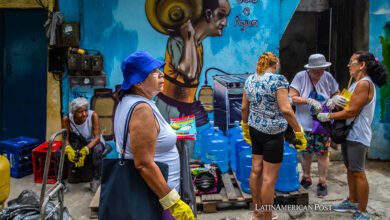How To Avoid Mosquito Bites And Protect Yourself From Diseases
Mosquitoes are one of the insects that can bring the most problems to humans since some are vectors that transmit diseases. We tell you how to avoid mosquito bites .

Photo: Freepik
LatinAmerican Post |Daniel Alejandro Vergara García
Listen to this article
Leer en español: Cómo evitar las picaduras de mosquito y protegerse de las enfermedades
Mosquitoes are common insects in much of the world, they are easily recognized not only by their anatomy but also because they tend to bite and go through the skin of various mammals. One of the reasons for mosquito bites is that they need to suck blood. Thanks to this, the females can start a cycle that will culminate in the laying of eggs and their reproduction. However, by having direct contact with blood, they can absorb certain types of viruses that they will later transmit to other mammals.
Read more content like this at: thewomanpost.com
Most of the time, mosquitoes are not affected by the viruses they absorb, that is, these insects function as a bridge for the transmission of viruses to animals and humans. These types of animals are known as vectors. According to data from the Pan American Health Organization (PAHO), in the American continent with mosquito bites about 10 diseases with high contagion rates can be transmitted . Currently, according to the same organization, in the Americas 1 in 2 people is at risk of suffering from a disease transmitted by mosquito bites.
What can I do to avoid mosquito bites?
To prevent mosquito bites, you must first avoid the presence of these insects in the house.
- Eliminate mosquito breeding sites. According to the WHO and PAHO, containers that have stagnant water, which do not have any continuous flow, are foci for the reproduction and growth of mosquitoes. This is because insects need water to continue their growth phases (egg – larva – insect).
- Change the water in containers in no more than 7 days, constantly wash these types of containers and keep them closed.
- If you are in a place with a high presence of mosquitoes, you should wear clothing that can cover a large part of the body. At bedtime it is essential to use mosquito nets.
- Continuously use mosquito repellent on the skin and on clothing. Homemade mosquito repellents are natural and inexpensive alternatives to keep these insects away. Some examples include citronella, eucalyptus, lemon, and lavender oil. These substances have repellent properties and can be mixed with water or carrier oil to apply to the skin or spray into the environment.
- Take extreme measures of care and prevention with pregnant women, girls and boys, older adults or people who suffer from chronic diseases.
You can also read: Sterilized Mosquitoes: A Solution To Many Problems
Although there are few options to avoid the presence and bites of mosquitoes, if they are carried out , the chances of contracting a virus or suffering from a disease transmitted by these insects can be greatly reduced.
We recommend you read: 5 plants that help you purify the air in your home
What diseases can mosquitoes transmit?
“ Dengue, Malaria, Zika, Leishmaniasis, Schistosomiasis and Yellow Fever, Chikungunya, Lymphatic Filariasis, River Blindness and West Nile Virus ”, are ten of the diseases that PAHO has reported are present in the Americas and are transmitted by mosquitoes and other insects. Three of the diseases that have generated high rates of morbidity and mortality in recent years throughout the continent are: Dengue, Zika and Chikungunya.
Zika: Although efforts to control this disease have been very successful, Zika has affected more than 30,000 people. The incubation period is 3 to 14 days, its symptoms are related to fever, skin rashes, malaise and muscle pain. As additional information, PAHO affirms that this virus is closely related to the appearance of Guillain-Barré syndrome and microcephaly.
Dengue: According to the World Health Organization, “In the Region of the Americas, between January 1, 2023 and March 4, 2023, a total of 342,243 cases of dengue were reported, 86 of them fatal. During the same period, the highest cumulative incidence of cases of the disease was reported in Bolivia, with 264.4 cases per 100,000 inhabitants, followed by Nicaragua with 196.8 cases per 100,000 inhabitants, and Belize with 145.6 cases per 100,000 inhabitants. .
Dengue affects 1 in four people and its symptoms can be mild or severe, in the latter case this may require immediate hospitalization. The symptoms can last between 2 and 7 days and can commonly be associated with suffering from a common disease nausea, body pain and fever are the most predominant symptoms.
Chikungunya: This virus is increasing in the region of the Americas and the Caribbean, the WHO issued an alert because in 2023 the contagion rate increased considerably. According to this organization, “Between January 1 and March 4, 2023, a total of 113,447 cases were reported in the Region of the Americas, with 51 deaths, which represents a four-fold increase in the number of cases and deaths compared to the same period in 2022 (21,887 cases, with eight deaths).”
The symptoms are usually very similar to those of Dengue and Zika, fever with high temperatures and general malaise. It is recommended to see a doctor if the symptoms become uncontrollable.




